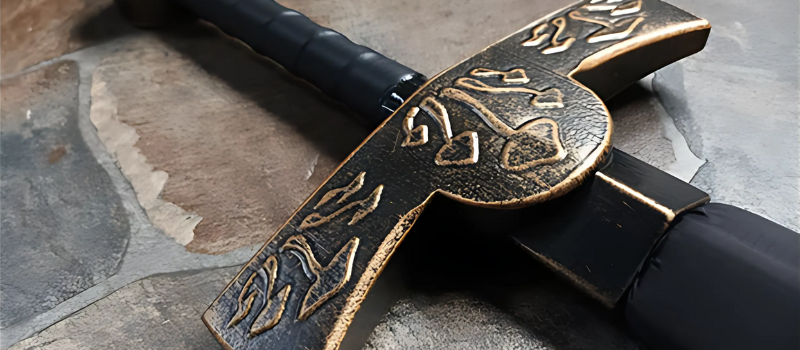Post Event Surveys or PELs
How Your Event Feedback Helps Build the LARP Community

Introduction
Feedback is a powerful tool. Our event feedback - sometimes called Post Event Letters (PELs), helps the games staff to understand the games strengths and weaknesses, identify areas for improvement, achieve the games goals, and build relationships and community.
Everyone involved in game design and event planning is impacted by player feedback. In this blog, intended for both players and staff, we discuss the process and benefits of constructive feedback for all types of LARPs, Parlor/Theater LARPs, Vampire LARPs, Boffer LARPs, and large-scale events like Bicolline and Drachenfest.
6 Benefits of LARP Feedback:
- Self-Awareness and Personal Growth: Responses to a PEL can help a player understand how their actions are perceived by others. By being receptive to feedback, NPCs and Staff become more adaptable and open to change.
- Improvement Opportunities: A list of improvement opportunities can be developed by including targeted questions that asks the players for their opinion. By understanding areas that need improvement, LARPs can focus their efforts on these specific areas to improve the community experience.
- Learning: Feedback provides new information and perspectives, helping LARPers make better decisions and learn from mistakes.
- Building Community and Collaboration: Open communication and feedback foster trust and understanding between LARPers, strengthening relationships in and out of game. When feedback is shared openly and constructively, it fosters a more collaborative and supportive community.
- Increased Motivation: Positive feedback and recognition can be powerful motivators, encouraging players to continue contributing to the community.
- Increased Player Satisfaction: By gathering and acting on feedback, LARPs can improve player satisfaction and loyalty.
The DOs and DON’Ts of Post-Event Feedback:

Player DOs and DON’Ts
- DO complete a PEL. Staff needs your help to continue growing the story and building a stronger community.
- DO give more detail. 1) “Went on snow queen mod” is nice. 2) “Went on snow queen mod and earned her favor by dueling her enemy in her name. Loved the NPC who I dueled. He had a great repartee and made me feel like I was earning my victory. The layout of the mod was well thought out.” is even better.
- DO be thoughtful and nice. Remember, the people you’re submitting to are hard-working volunteers trying to provide entertainment, AND they’re likely friends.
- DON’T submit too quickly. Put your thoughts down while they’re fresh, then go back a day or two later and read and edit with a clear, rested head. LARP Portal will allow you to save your work without submitting and return to edit it later.
Staff DOs and DON’Ts
- DO make it easy and convenient for players to give event feedback. A structured channel helps both sides be heard at optimal times. In LARP Portal, post event letters (PELs) are immediately available after the close of an event to capture fresh memories. The system provides a customized template by player type that can be updated for each event. They can even submit an addendum if they forget something.
- DO build your player survey with open-ended questions that encourage constructive feedback. Your questions should be clear, have purpose and gather information that the staff needs to support your game and community. A balanced survey combines numbers with narrative for richer insight.
- DO limit the number of questions and put the most important questions first. Some players may treat a PEL as homework and focus most on the earlier questions so put the ones you want answered most at the top.
- DO communicate the PEL due date, especially if there is a reward associated with turning one in by the due date. It is best to be clear and consistent with date expectations. We recommend that the due date be related to the events end date. For example 14 days from the last date of the event. If your system has the capability, give your players an option to receive a “due in 2 days” reminder.
- DO follow-through - It matters! It builds trust and demonstrates commitment to improvement. Analyze responses over time for trends, implement changes, and communicate what you're doing in response to feedback. LARP Portal makes that easy by letting you group all the answers to an individual question. That’s also good for getting all the right feedback to certain questions to the right recipients.
- DO treat each event as part of a feedback-driven evolution. Plan actionable improvements and share back: “Based on your feedback, next time, we’ll….”
- DON’T use cumbersome and inconsistent processes and survey methods
- DON’T frame your questions as yes/no questions, or phrase questions that allow PELs to be a dumping ground for complaints.
- DON’T read or respond to feedback immediately. Wait a few days after an event before you read the feedback. Give yourself time to rest and recover. Time helps you gain perspective, prevent defensive reactions and encourages thoughtful responses.
Closing
Feedback isn’t just data or a postscript—it’s the lifeblood of growth. It contributes to game design and is a shared communal process. The way you give and receive feedback and how you act on feedback makes all the difference. Approach it with intentional clarity, process with empathy, and iterate with purpose, and you'll foster not just events, but communities built on continuous improvement.
Call to Action
If you are a game owner or are thinking about starting a game, let LARP Portal simplify your administrative processes and give you and your players more time for LARPing. Contact us at demo@larportal.com today for a free demo.
Latest Blogs



.png )




.png )

















